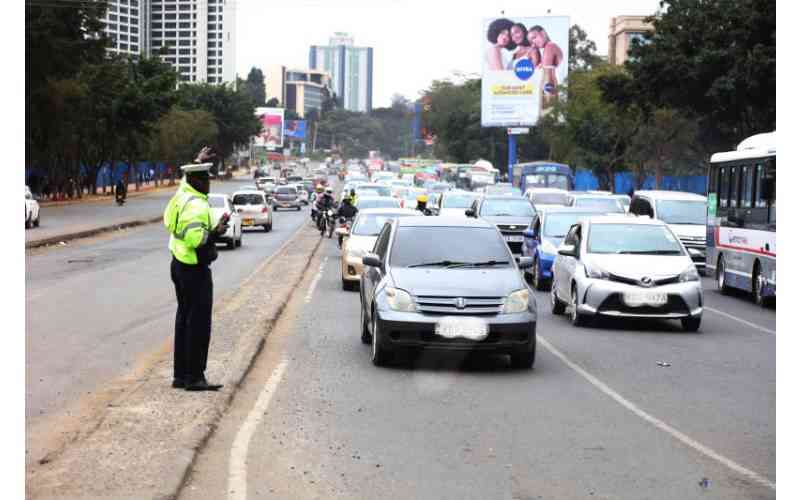The other day, I decided to conduct a small social experiment — one that required no more than a half-hour of my time, a keen eye and willingness to simply observe.
I chose the bus stage near Garden City. A stern-faced police officer diligently managing traffic was the focus of my experiment.
What I witnessed in those 30 minutes painted a telling picture of our culture and, more broadly, the gap between our aspirations and our current reality.
The police officer in question looked as though he had never smiled in his life. The deep-set seriousness etched into his face and posture suggested a man who takes his job very seriously.
Follow The Standard
channel
on WhatsApp
Over the course of 30 minutes, he stopped 15 vehicles. Fourteen of these were private cars, and one was an old truck. That’s an average of one stop every two minutes, which at face value suggests a commendable level of engagement with traffic enforcement. He was a man who loves his work, I concluded.
Each stop followed a similar pattern: the officer would stroll over to the vehicle, inspect the insurance and other stickers and perform a cursory walk-around — checking the tyres and state of the vehicle generally.
Roughly half of these interactions ended with a wave, allowing the drivers to continue their journey. The other half involved longer conversations, suggesting that something may have been amiss.
Was he simply informing the drivers that their insurance had expired and kindly requesting they renew it?
In a society where the line between enforcement and solicitation is blurred, one cannot help but suspect however that bribes were being negotiated. And of course they were.
One interaction in particular stood out. The officer stopped a Mercedes-Benz – it reeked of old money – exchanged a few words with the driver, and then the cop entered the car.
The two drove off slowly — not more than 50 metres — and parked for what appeared to be a private discussion.
Perhaps they were exchanging views on carbon credits or discussing matters climate change. But when the officer finally stepped out, he wore a broad grin — the first and only time his facial muscles moved in that direction during my entire observation. That smile said more than words.
Meanwhile, the matatus carried on with their usual antics. Picking passengers wherever they pleased, blocking lanes, and generally disregarding any semblance of order. The boda boda riders were just as unruly — riding against traffic, and even showing irritation when others didn’t give them way.
These two categories of road users continue to operate as if rules were suggestions rather than laws.
And yet, amid all this, we regularly talk — almost romantically — about becoming like Singapore. We speak of modern cities, disciplined systems, and functional public infrastructure. But how do we expect to get there if we can’t even enforce simple traffic rules?
We invoke the imagery of gleaming cities, disciplined systems and orderly growth. But how can we get there when our roads — the arteries of our economy — are managed in such chaos? How can we dream of smart cities while matatus and boda bodas play by their own rules, and officers tasked with enforcement seem more motivated by “discussions” in parked cars?
This isn’t just about one officer. It’s about the system. A system where accountability is absent, where traffic law enforcement is opaque, and where the incentives lean heavily towards corruption rather than order.
What if, instead of empty rhetoric, we asked hard questions? In those 30 minutes, how much revenue did this officer collect for the government? How many violations were formally recorded? How many arrests were made?
Singapore’s rise was not by magic. It was built on discipline, rule of law, and the unglamorous work of enforcing the basics.
Until we can replicate even a fraction of that discipline on our roads, Singapore will remain a distant dream — the stars we claim to be shooting for — while even the moon stays well out of reach.
-The writer is a communications consultant
Follow The Standard
channel
on WhatsApp
By Mutahi Mureithi


